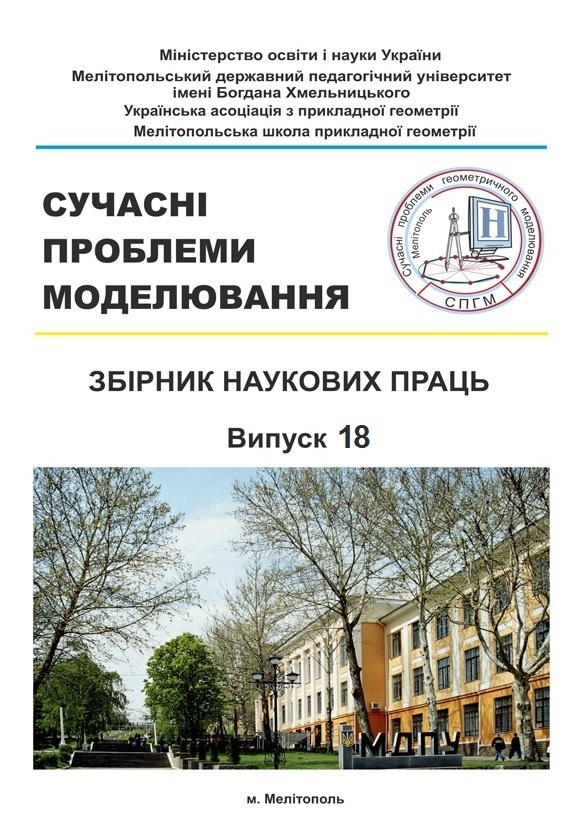GENERALIZED ALGORITHM FOR VARIABLE DISCRETE GEOMETRIC MODELING
Abstract
The paper considers a generalized algorithm for variable discrete geometric modeling (VDGM), as a separate direction of applied geometry with its theoretical justification and a set of practical methods and tools.
Modern modeling methods are divided into discrete and continuous. Continuous (classical) methods are based on the receipt of a modeling function, which is usually analytical, which allows us to observe certain additional conditions of the problem or requirements for the result in the modeling process. At the same time, the obtained modeling function in a certain way affects the simulation result, imposing its own properties on it, which distorts the final result (sometimes even to a large extent). Therefore, modeling methods (discrete modeling) that exclude the search for a modeling function have become relevant, instead a specific algorithm for finding a solution is built. The construction of such an algorithm has certain (unique for each individual discrete modeling method) difficulties, and may require certain additional conditions and restrictions. In discrete modeling, the construction and calculation of a function is replaced by geometric constructions and transformations, which can greatly complicate the solution of the problem. Thus, the construction of the algorithm of the discrete modeling method (discrete geometric modeling) is a complex and urgent task requiring separate studies within each of the methods. This determines the relevance of considering this issue for discrete geometric modeling (DGM) and, accordingly, for the direction of variable discrete geometric modeling (VDGM).
Algorithmic software is one of the important components of the complex problem of improving accuracy in the VDGM and its construction has not only scientific and technological, but also a methodological aspect. High simulation results are guaranteed by the algorithms that most fully take into account and ensure that related issues are taken into account (stability and convergence of computational schemes and algorithms, the possibility of introducing adapted coordinate systems, etc.).
The basic requirements for the methods and algorithms of VDGM are determined by the results of many years of their numerous application in various problems of science and technology, as well as in various subject areas. Basically, these are: simplicity of computational algorithms; high accuracy; the ability to correct the solution to the extent that the simulation requirements are met; lack of oscillations.
The paper presents a generalized VDGM algorithm, the initial data for which are experimental or statistical data on the phenomenon or process to be simulated, as well as the requirements of the modeling problem in terms of content, accuracy, criteria, etc.
Its concretization to some formalized classes of problems of the VDGM are considered:
– DPC thickening algorithms based on geometric relationships;
– modeling based on discrete representations of polynomial functions;
– algorithms for accounting a priori information;
– DPC form control algorithms;
– algorithms for solving systems of difference equations by methods of condensation identities;
– algorithms for the transition from an uneven grid to a uniform one.
Key words: variable discrete geometric modeling (VDGM), geometric image (GO), discrete geometric modeling (DGM), discretely presented curve (DPC), modeling accuracy.




